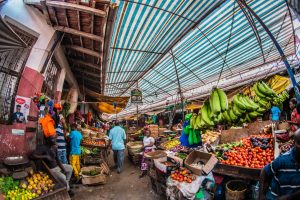The Internet has given a space for African sellers to conduct their businesses on online marketplaces. There are several online platforms in Africa that assist sellers increase their customer base and sales by going virtual. This article will highlight some of the top online marketplaces for Africans to sell stuff online.
Benefits of Selling on African Marketplace Online
- Online market places offer African sellers a number of benefits. Some of them are:
- 24/7 availability. The online marketplaces available in Africa are structured in a way that allow individuals to buy products at any time of day and night. Subsequently, you are able to sell your products even when you are sleeping.
- Access to a large market. When selling from a physical store, you have access to a relatively small pool of potential clients. Online marketplaces offer a suitable solution to this challenge by enabling you sell to a large number of individuals within and outside your region.
- Convenient management. Most of these online marketplaces do all the hard work for you. This includes delivering the orders and handling all after-sale services. All you need to do is to avail quality products and package them appropriately.
Top African Marketplace Online
Afrikrea
This site has developed into one of the largest online marketplaces in Africa; an aspect that is substantiated by its numbers. Afrikrea has over 5400 shops and has served clients in 110 countries worldwide. Additionally, the site has about 260,000 visitors every month and has had over 66,000 orders.
Its niche market comprises of individuals looking for items with an African touch. It is keen on working with creatives who use African designs and prints to make pieces whose styles appeal to the global market. Sellers can avail anything from jewelry to bags, clothes, fabrics, and fine art.
Some of the benefits of selling on Afrikrea include the presence of a programmed dashboard that helps you manage promotions and listings, direct payments from the client, and zero listing charges. Additionally, you are only required to pay the 10-15% commission after selling the product.
How to Sell on Afrikrea
To sell on Afrikrea, you will need to create your shop on the site for free. Once a buyer orders your product, you will be notified via text or email. After this notification, you have 48 hours to confirm the order. Once the consignment is confirmed, you will receive money in your virtual wallet. It is important to note that you, the seller, are responsible for shipping the product.
Zando
If you are a trader in South Africa and are looking for an online platform to sell stuff online, Zando is one of the viable options. Sellers can sell items related to fashion, beauty, or homeware. It has about 3.5 million visitors very month and over 800 brands selling on this site. The seller is expected to handle inventory acquisition and packaging. After that, Zando takes care of product delivery, after sales services, and communications with the client.
How to Sell on Zando
To start selling on Zando, you will need to register on the site. Upon doing so, you are now ready to upload your products and the relevant details. To upload their image as an authentic trading platform, the listed items are reviewed by the company before being placed on the marketplace.
On the benefits of this platform is that you are able to manage the placed orders and your stock. Once an order has been placed, you have 36 hours to package the item and send it to Zando’s warehouse. One gets paid within 30 days after delivering the item.
Konga
Konga is one of the popular online marketplaces in Nigeria. You can sell a wide range of products on the site including fashion and beauty items, home décor, and electronics. One of the reasons why it is considered to be an ideal trading platform is the availability of an efficient communication structure that allows you to talk to your buyers. Additionally, you get to decide on the price of your products as well as other crucial details such as the preferred delivery method and payment mode. Konga cuts 3% of the sales as commission.
How to Sell on Konga
To start selling on Konga, you will need to visit their site and fill in the signup form. The company will then verify the included details to ensure you have provided accurate information related to your contacts and bank details. Once the company ascertains the details, you will be assigned a support officer who will be available 24/7 to assist you in any manner possible.
You will then get a SellerHQ account; which is a market management dashboard that enables you manage your inventory, upload images of the item you intend to sell, and monitor the sales and finances. Just like other online platforms in Africa that are keen on maintaining their authenticity, Konga reviews the uploaded product before placing it on the site. Once a client places an order, you have 24 hours to confirm it and a further 3 days to ship it. The payment is then sent to your account within 3 working days after the client receives the package.
Jumia
Since its establishment in 2012, Jumia has developed into one of the largest online marketplaces in Africa. It currently operates in over 10 African countries including Kenya, Nigeria, Uganda, and Tunisia. It is one of the best online selling platforms in Nigeria. You can sell a variety of items on this platform including clothes, books, electronics, health and beauty products, and décor items. It is important to note that Jumia only accepts items that are new, legal, and of good quality.
How to Sell on Jumia
To register on Jumia, you need go to their website and click on “start selling now”. When registering, be sure to include crucial information such as your contacts, shop’s location, and product category. The company will then send you an email containing a link to their “Vendor Hub”. On this page, you will have access to a range of information as part of their training program. You will also get a link to their “Seller Center” page. Use this platform to input your bank account, product details, and other necessary specifics.
Kilimall
Since its introduction, Kilimall has gained popularity in various African countries such as Kenya, Nigeria, and Uganda. Notably, this online marketplace is a lot like Jumia and the other platforms listed on this article. For instance, it has a Seller Center that enables sellers to market your products.
How to Sell on Kilimall
To start selling on Kilimall, you will need to register as a seller. This can be done online or via the Kilimall app. You can choose to register either as a global or local seller. Once you have created a shop, it is now time to select the appropriate product category, include the relevant details, and upload appropriate images. With these simple steps, you are ready to trade on this online marketplace in Africa.
Takealot
Takealot is one of the largest online marketplaces in South Africa. The marketplace allows you to register and sell your products to its over 2 million customers. Takealot will ship your products to your clients on your behalf. You first need to send inventory to Takealot, and then when a client places an order for one of your products, Takealot will send it to them.
How to Sell on Takealot
You need to register on the South African online marketplace website. They will review your application and get in touch with you within 10 business days. You will then complete your Takealot Seller account by supplying all the required information and paperwork. Finally, you will learn all about Takealot processes and choose your stock model and get your products live and start selling.
Using Takealot to sell your stuff online in South Africa attracts a monthly fee of R300. The platform also charges a success fee for each sale. The charge can be between 4% and 15% on each item sold. Product with a stock cover of 35 days or less receive free storage Takealot distribution centres. Alternatively, you can only deliver the number of products ordered to avoid being charged.
Conclusion
Gone are the days when you had to have a physical store to sell your merchandise. The Internet has allowed individuals to open virtual stores and reach a larger market. Evaluating the features and policies of each entity will help you identify the most appropriate online marketplaces to use in Africa.










![How to Patent an Idea [Kenya, Tanzania, Ghana, Nigeria, South Africa, Zambia]](https://businessideas4africa.com/wp-content/uploads/2020/11/patent-300x200.jpg)









![How to Grow Hemp for Industrial and Medicinal Use [Beginner’s Guide]](https://businessideas4africa.com/wp-content/uploads/2020/11/vpfehvi5ue4-scaled-300x200.jpg)














